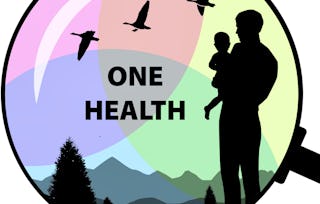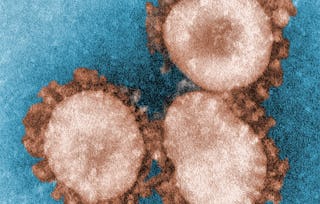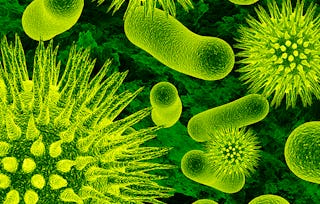What are the causes of disease? We know that most diseases result from a combination of genes and environment (nature and nurture). Our genes alone do not determine our fate. For most complex diseases, externalities - environmental factors in the broad sense - are more important. This includes our living and working environments, diet, social support and stress, pollution, and exposure to infectious agents. Exposome research is about discovering the non-genetic drivers of health and disease.
The exposome: cracking the science about what makes us sick

The exposome: cracking the science about what makes us sick


Instructors: Roel Vermeulen
1,943 already enrolled
Recommended experience
Skills you'll gain
Details to know
See how employees at top companies are mastering in-demand skills

There are 6 modules in this course
Welcome! Here you will find general information about the course. The learning objectives, the structure, and the requirements of completion will be presented to you. We will kick off with an introductory lecture by Prof. dr. Roel Vermeulen, a peer discussion assignment and a short quiz.
What's included
1 video4 readings1 assignment2 discussion prompts
This week we will learn about how Exposome approaches are changing research into the etiology of cardiovascular diseases.
What's included
1 video2 readings1 assignment1 discussion prompt
This week we will address what the external Exposome is and how we can assess it. We will focus on two exposures: air pollution and the food environment.
What's included
2 videos2 readings2 discussion prompts
This week we delve into what the internal Exposome is, with a focus on metabolomics as one important approach.
What's included
1 video2 readings1 assignment1 discussion prompt
This week we look at the role of data science in Exposome research and the novel data science solutions.
What's included
1 video2 readings1 assignment1 discussion prompt
In this final week of the course Roel Vermeulen describes which exposome deliverables we can expect in the near future. Some of the experts reflect on challenges and future perspectives in the field of Exposome research.
What's included
1 video4 readings1 peer review2 discussion prompts
Instructors


Offered by
Explore more from Public Health
 Status: Preview
Status: PreviewJohns Hopkins University
 Status: Free
Status: FreeAmerican Museum of Natural History
 Status: Free Trial
Status: Free TrialUniversity of Michigan
 Status: Preview
Status: PreviewUniversity of Leeds
Why people choose Coursera for their career

Felipe M.

Jennifer J.

Larry W.

Chaitanya A.

Open new doors with Coursera Plus
Unlimited access to 10,000+ world-class courses, hands-on projects, and job-ready certificate programs - all included in your subscription
Advance your career with an online degree
Earn a degree from world-class universities - 100% online
Join over 3,400 global companies that choose Coursera for Business
Upskill your employees to excel in the digital economy
Frequently asked questions
To access the course materials, assignments and to earn a Certificate, you will need to purchase the Certificate experience when you enroll in a course. You can try a Free Trial instead, or apply for Financial Aid. The course may offer 'Full Course, No Certificate' instead. This option lets you see all course materials, submit required assessments, and get a final grade. This also means that you will not be able to purchase a Certificate experience.
More questions
Financial aid available,
¹ Some assignments in this course are AI-graded. For these assignments, your data will be used in accordance with Coursera's Privacy Notice.